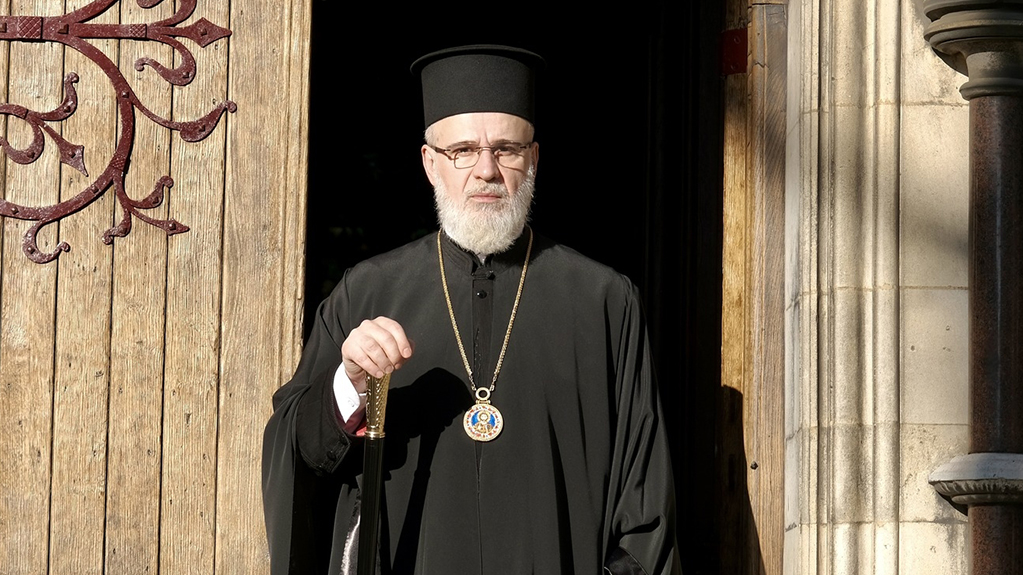Georgian Orthodox Church Holy Synod member, Dmanisi and Agarak-Tashir Archbishop, Zenon, has issued a critical letter regarding the Russian law on Agents. The head priest believes that if the government wants to prevent the impending threats, it should include in the draft law that Russia and those countries that have recognized the independence of the occupied Abkhazia and Tskhinvali regions represent a threat. Reverend Zenon said that requiring the media and non-governmental organizations to register as "carriers of the interests of a foreign power" creates a risk of stigmatization, which is incompatible with the legal environment, the spirit of Christian teachings and can be fatal for people's lives.
News
Trending stories
- 1 Former Prime Minister Garibashvili Sentenced to Five Years in Prison After Plea Deal
- 2 Otar Partskhaladze Charged with Organizing Murder of Businessman Levan Jangveladze
- 3 Shalva Papuashvili Says Georgian Dream Filed Complaint with BBC
- 4 Georgian Dream Party Further Tightens Grants Law, Introducing Up to 6 Years in Prison
We publish the letter with a slight abridgement:
"The regulations established by the draft law On Transparency of Foreign Influence apply both to the completely non-governmental sector and to the non-entrepreneurial (non-commercial) legal entity established by the Georgian Orthodox Church (Georgian Patriarchate), because based on the definition in the second article of the General Administrative Code, the Church of Georgia is not an administrative body.
Dear Members of the Parliament of Georgia,
In the state of Georgia, there are relevant institutions or services whose state-institutional function is to carry out financial and any kind of monitoring related to legal persons, organizations, or administrative bodies. Thus, it is not clear why it should be necessary, in order to create transparency and monitoring, to additionally adopt such a law that prompts its citizens or groups of citizens to register with the state as "carrying the interests of a foreign power". At the same time, it should be noted that the draft law provides differentiation, which is why the said law will not apply to certain legal entities, leaving them the right and opportunity to carry out their activities outside of this law.
The threat to the security of the Georgian state, its sovereignty, and territorial integrity is posed by the Russian state, which has occupied 20% of Georgia's territory. Those countries that have recognized the self-proclaimed republics as sovereign on the territories of Georgia occupied by Russia represent a threat.
If we want to prevent threats from foreign influence and organizations carrying the interests of a foreign power, the preamble of the draft law should indicate which countries represent a threat. Accordingly, the funding received from these countries should be subject to appropriate transparency and control.
Placing the occupying country of the state territories of Georgia, the countries recognizing the "sovereignty" of the occupied territories, and the countries firmly supporting the territorial integrity of Georgia, its statehood, and sovereignty, on the same plane is not allowed.
Over an extended period of time, the strongly negative reaction of society and the unequivocally negative assessment of the relevant institutions of the European Union should be sufficient arguments for the state legislature to address the question: what are the benefits of ignoring the call for European unity for the state of Georgia, for its security, on the way to European integration, which is vital for the country's security.
In the civilized world, it is categorically not allowed, especially at the state legislative level, to legislate the conditions of social stigmatization, because stigmatization is aimed at the social rejection of a person. It is nourished by the pathos of discredit, and accompanying it is the monstrous progress of human discrimination.
A stigmatized person faces socio-psychological problems that can be fatal.
A stigma was attached to a person who was unacceptable to society, such as a special criminal, a slave, or a traitor. Stigmatization is fundamentally incompatible with the legal environment and is unacceptable for a developed society.
The "marking with stigma" of persons, social groups, and public organizations by the state, through direct or indirect action, essentially contradicts the spirit of Christian teachings and the general human values of the civilized world.
The content of the draft law On the Transparency of Foreign Influence and the presented registration wording create the danger of stigmatizing citizens and non-governmental organizations, including institutions such as the church.
To avoid the danger arising from the content of this draft law, which provokes the stigmatization of citizens, the organizations created by them, and, in general, any non-governmental institution (including the church), it is essential for the government, church, and society to adopt an aggressive approach that categorizes individuals into "desirable" and "undesirable," leading to marginalization, harassment, repression, social inequality, and confrontation among public groups.
On April 3, 2024, the ruling Georgian Dream once again initiated the Russian law on Foreign Agents in parliament, which was withdrawn a year ago as a result of thousands of protests. The party had promised that it would never be accepted again. The Russian Law obliges independent media and non-governmental organizations, which work with grant support from international organizations and cannot be controlled by the government or related groups, to register as foreign agents.
The European Union, the US State Department, the United Nations, and international organizations have called on the Georgian authorities not to adopt a law that is incompatible with the values of the European Union and threatens the freedom and existence of the media and the civil sector.
Protests against the Russian law have been taking place in Tbilisi, near the parliament, since April 15. In contrast, Georgian Dream is holding a "universal public meeting" in front of the parliament building on April 29 in support of the Russian law. Employees in public services are obliged to participate in the action.















